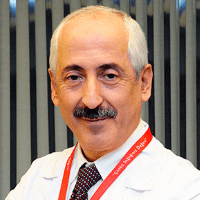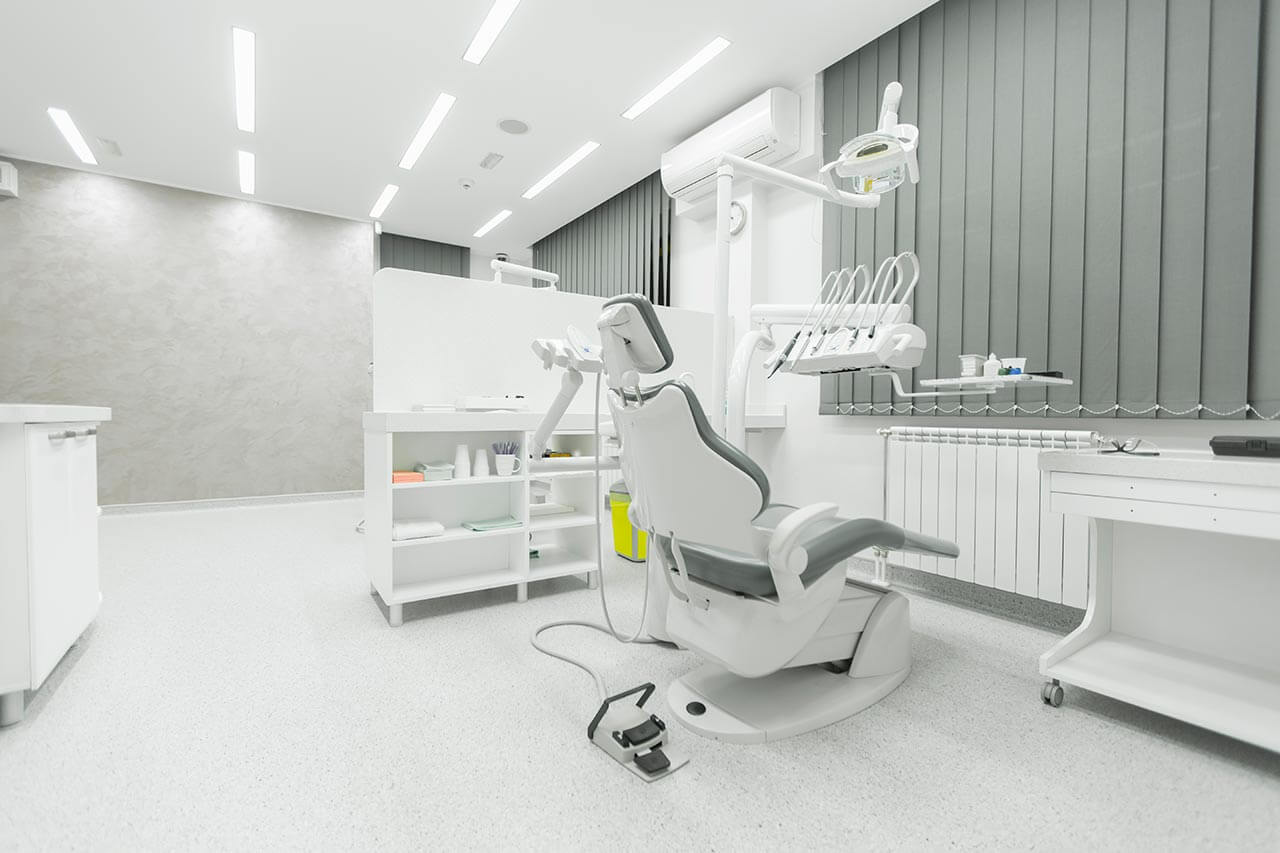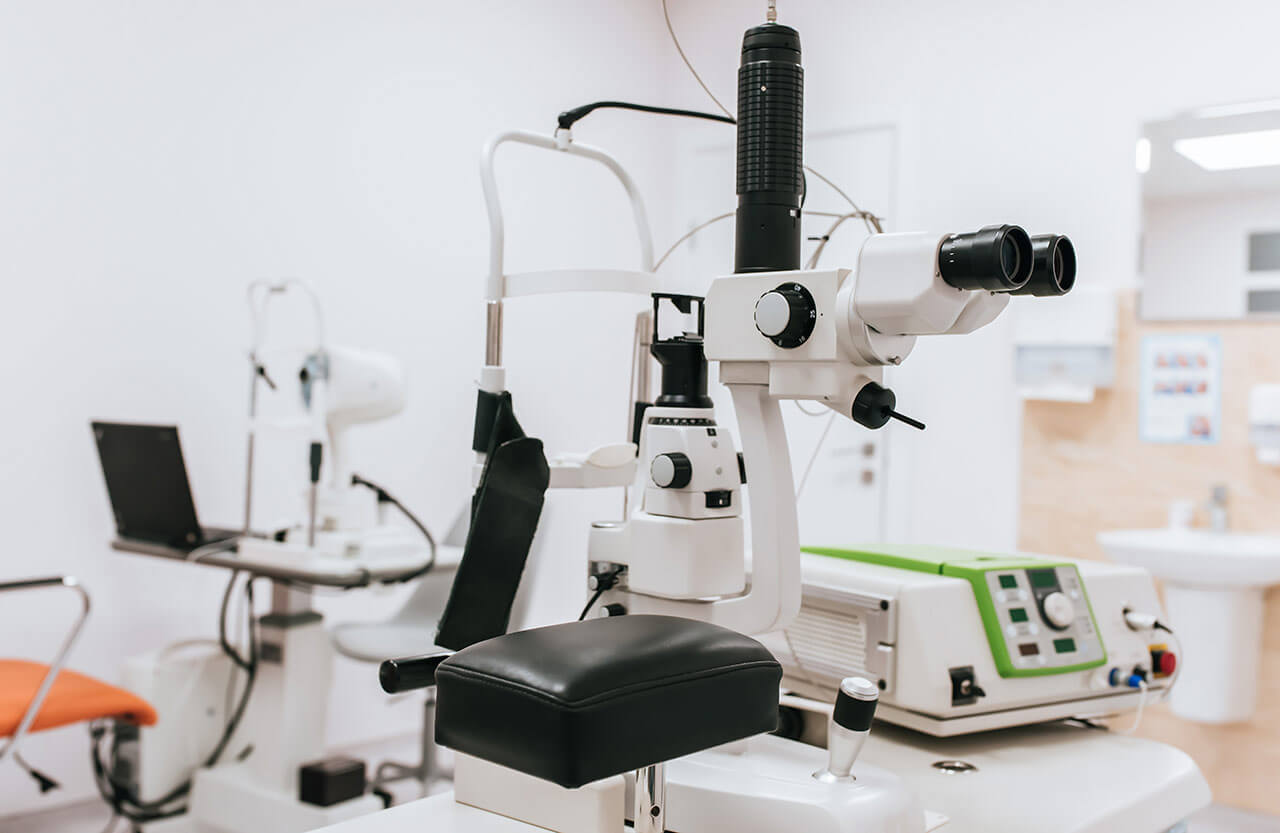
The program includes:
- Initial presentation in the clinic
- clinical history taking
- general clinical examination
- laboratory tests:
- complete blood count
- clinical urine test and urine culture
- kidney function test (creatinine, urea)
- blood coagulation analysis (aPTT, PT, INR)
- inflammation indicators (CRP, ESR)
- semen analysis
- pelvic ultrasound
- digital rectal examination
- CT scan (on indication 650 €)
- MRI scan (on indication 1200 €)
- nursing services
- consultation of related specialists
- consultation of the chief physician and all leading experts
- development of individual treatment plan
- written statement
Service
You may also book:
 BookingHealth Price from:
BookingHealth Price from:
About the department
The Department of Adult and Pediatric Urology, Andrology at the Memorial Atasehir Hospital Istanbul offers the full range of medical services in its areas of specialization. The team of urologists provides the effective treatment of urologic diseases of any severity – from prostatitis and benign prostatic hyperplasia to prostate cancer, testicular, bladder and kidney cancer. The competence of the department's specialists also includes medical care for men suffering from erectile dysfunction, endocrine disorders and infertility. The department admits patients of all age groups, including children. The treatment of young patients is provided by specially trained doctors with qualifications in urology and pediatrics. The focus in pediatric urology is on the treatment of congenital urologic diseases. The department has modern medical equipment for high-precision diagnostics and quality treatment in accordance with international medical standards. The urologists of the medical facility successfully use innovative endoscopic, laparoscopic and robot-assisted surgical techniques, which guarantee excellent results, but at the same time postoperative recovery is much faster than after a classical open intervention. The department is headed by Prof. Dr. med. Turhan Caskurlu.
The department most often deals with the treatment of patients suffering from urologic cancers – tumors of the prostate gland, testicles, bladder and kidneys. The most important role in the successful treatment outcome is played by comprehensive diagnostics, with the help of which the doctors obtain all the necessary clinical data: the exact type of the tumor, its location and size, the stage of the malignant process, etc. Based on these factors, the board of doctors develops the optimal treatment regimen in order to achieve complete cure of the patient or long-term remission of the pathology. The first step in the diagnostics of prostate cancer is PSA test. If the results are unsatisfactory, the patient will be appointed further imaging tests. During the diagnostics of testicular, bladder and kidney cancer, the doctors conduct clinical and biochemical urine and blood testing, cytological examinations, cystoscopy, cystometry, ultrasound scanning, CT and MRI scanning. The required complex of diagnostic tests is determined individually, according to the clinical examination, complaints and medical history of the patient. Most patients with prostate cancer undergo prostatectomy, which can be supplemented with chemotherapy, radiation therapy and other treatments. The department has the advanced da Vinci Surgical System, and therefore robot-assisted prostatectomy is preferred in the department's clinical practice. HIFU (high-intensity focused ultrasound) therapy may be recommended for patients with contraindications to surgery. The department's specialists also perform robot-assisted interventions to remove kidney tumors. The most common surgical procedures for bladder cancer are transurethral resection of the bladder, which is performed using sparing endoscopic techniques, as well as radical cystectomy (total removal of the bladder). In the case of bladder, kidney and testicular cancer, surgery is also complemented by chemotherapy and/or radiation therapy. Each stage of treatment is carefully thought out by the board of doctors in order to ensure the patient with the best treatment result.
The team of specialists in andrology is responsible for the treatment of male reproductive and sexual health disorders. Should male infertility be suspected, the patient will have to undergo a spermogram, the result of which will give the attending physician the opportunity to assess the quality of the sperm. If the spermogram results do not provide comprehensive information, the department's specialists carry out additional diagnostic tests, the main purpose of which is to detect the causes of infertility. The accurate detection of male factor infertility plays a key role in the success of therapy. As a rule, the main causes of infertility in men are hormonal disorders, varicocele, undescended testes, infectious testicular lesions, previous sexually transmitted diseases, etc. Depending on the particular cause of infertility, the necessary set of therapeutic measures is appointed for the patient. The department's specialists also quite often deal with the treatment of men with erectile dysfunction and ejaculatory disorders. The department widely uses such methods as shockwave therapy, magnetic laser therapy, ozone therapy and therapeutic massage to treat erectile dysfunction. These techniques are recognized as the most effective in the treatment of male sexual dysfunction.
The department's priority focus is also on the treatment of pediatric urologic diseases. The department has vast experience in the treatment of such pathologies as undescended testis, varicocele, hydrocele, urinary tract infections, urinary disorders (enuresis), urinary tract obstruction, kidney stones, vesicoureteral reflux, etc. The department has excellent diagnostic equipment adapted for the examination of children – the diagnostic procedures are painless. During the entire therapeutic process, the department's specialists pay great attention to the psychological state of the child, they surround him with care and attention. The surgical treatment in children is also performed using state-of-the-art endoscopic, laparoscopic and robot-assisted techniques, which exclude severe pain after surgery.
The department's range of medical services includes:
- Diagnostics and treatment of urologic cancers
- Prostate cancer
- Testicular cancer
- Penile cancer
- Kidney cancer
- Bladder cancer
- Diagnostics and treatment of benign prostatic hyperplasia
- Diagnostics and treatment of prostatitis
- Diagnostics and treatment of inflammatory diseases of the urinary tract
- Diagnostics and treatment of kidney stone disease
- Diagnostics and treatment of urinary incontinence
- Diagnostics and treatment of andrological diseases in men
- Male infertility
- Erectile dysfunction
- Ejaculation disorders
- Structural penile deformities
- Decreased libido
- Sexually transmitted infections
- Age-related changes affecting men's health
- Diagnostics and treatment of pediatric urologic diseases
- Undescended testicles
- Varicocele
- Hydrocele
- Infectious diseases of the urinary tract
- Urinary disorders (enuresis)
- Kidney stone disease
- Kidney cysts
- Kidney stones
- Renal enlargement
- Antenatal hydronephrosis
- Wilms' tumor
- Diagnostics and treatment of other urologic diseases in adults and children
The department's diagnostic and therapeutic options include:
- Diagnostic tests
- Laboratory blood and urine tests, including PSA test
- Ultrasound scanning of the kidneys, bladder, ureters, urethra
- Ureteroscopy
- Cystoscopy
- Cystography
- Uroflowmetry
- Cystomanometry
- Fusion biopsy with simultaneous MRI and ultrasound scans
- Computed tomography
- Magnetic resonance imaging
- Spermogram
- Therapeutic measures
- Conservative treatment methods
- Drug therapy (for example, for urinary tract infections)
- Extracorporeal shockwave lithotripsy for crushing kidney stones
- Holmium laser enucleation of the prostate for prostate adenoma treatment
- Chemotherapy and radiation therapy for urologic cancers
- HIFU therapy (high-intensity focused ultrasound for prostate cancer treatment)
- Shock wave therapy, magnetic laser therapy, ozone therapy and therapeutic massage for erectile dysfunction treatment
- Surgical treatment methods
- Percutaneous nephrolithotomy to remove kidney stones
- Retrograde intrarenal surgery to remove kidney stones
- Robot-assisted, laparoscopic and open surgery to treat prostate cancer
- Bladder removal in the case of cancer and other diseases followed by the formation of a new bladder (robot-assisted, laparoscopic and open surgery)
- Surgery to treat kidney tumors and other kidney diseases (robot-assisted, laparoscopic and open surgery)
- Minimally invasive surgery to treat urinary incontinence
- Surgical correction of congenital malformations of the genitourinary system in children
- Conservative treatment methods
- Other diagnostic and treatment methods
Curriculum vitae
Professional Career
- Since 2017 Chief Physician of the Department of Adult and Pediatric Urology, Andrology at the Memorial Atasehir Hospital Istanbul, Istanbul, Turkey.
- Since 2012 Head of the Department of Urology, Faculty of Medicine, Istanbul Medeniyet University, Istanbul, Turkey.
- 2010 - 2012 Lecturer in the Department of Urology, Faculty of Medicine, Hacettepe University, Istanbul, Turkey.
- 2010 - 2012 Head of the Haydarpasa Numune Teaching and Research Hospital, Istanbul, Turkey.
- 2005 - 2012 Head of the Department of Urology at the Goztepe Training and Research Hospital, Istanbul, Turkey.
- 1999 - 2005 Deputy Head of the Department of Urology at the Sisli Etfal Training and Research Hospital, Istanbul, Turkey.
- 1992 - 1998 Deputy Head of the Department of Urology at the Bezmi Alem Valide Sultan Training and Research Hospital, Istanbul, Turkey.
Higher Education and Postgraduate Training
- 1990 Internship at the Baylor College of Medicine, Houston, Texas, USA.
- 1988 - 1992 Specialized training in Urology, Haseki Training and Research Hospital, Istanbul, Turkey.
- 1979 - 1985 Study of Human Medicine, Faculty of Medicine, Istanbul University, Istanbul, Turkey.
Scientific Publications
- 77 publications in international scientific journals.
- 92 publications in Turkish scientific journals.
- Author of 3 books and 17 book chapters in Turkish.
Memberships in Professional Societies
- Turkish Association of Urology (Board Member and Accountant).
- Turkish Association of Endourology.
- Eurasian Association of Uro-Oncology (Board Member).
- Turkish Society of Andrology.
- European Association of Urology (EAU).
- International Society of Urology (SIU).
- American Urological Association (AUA).
- Turkish Medical Association.
Photo of the doctor: (c) Memorial Ataşehir Hospital
About hospital
The Memorial Atasehir Hospital Istanbul is a private medical complex, within the walls of which the patient is expected to receive excellent medical care and responsive care. The medical complex is part of the Memorial Healthcare Group, which consists of 14 hospitals that provide a wide range of services.
The hospital began its work in May 2008 and today enjoys the status of one of the best medical facilities in Istanbul. The medical center specializes in ophthalmology, plastic surgery, dentistry and reproductive medicine, cardiac surgery, oncology, etc. The hospital also includes an advanced Transplant Center – the success rate of liver transplantation here is 99%, kidney – 93.5%. Clinical practice has been awarded the prestigious Joint Commission International (JCI) certificate, which confirms the highest standards of patient service quality and excellent treatment success rates.
The hospital is open 24 hours a day, 7 days a week to provide patients with comprehensive and urgent treatment. It has a progressive infrastructure, state-of-the-art medical and technical base for high-precision diagnostics, effective conservative and surgical treatment, as well as all conditions for the best possible patient comfort.
The health of patients is in good hands of exclusively highly competent doctors who have received medical education at the best universities in Turkey, and have also completed numerous internships in leading hospitals in Europe and the United States. The specialists keep pace with cutting-edge innovations in medicine and seek to heal patients even with the most complex pathologies.
Photo: (c) depositphotos
Accommodation in hospital
Patients rooms
The patients of Memorial Atasehir Hospital Istanbul live in comfortable single or double rooms made in a modern design. The standard patient room includes a comfortable automatically adjustable bed, a bedside table, a wardrobe, a telephone and a TV. Each patient room has an ensuite bathroom with shower and toilet. To provide maximum convenience for patients, the patient rooms also have Wi-Fi.
Meals and Menus
The patient and the accompanying person are offered tasty and balanced three meals a day. If for some reason you do not eat all foods, you will be offered an individual menu. Please inform the medical staff about your food preferences prior to treatment.
Further details
Standard rooms include:
Accompanying person
During the inpatient program, the accompanying person can live with the patient in a patient room or a hotel of his choice. Our managers will help you choose the most suitable option.
Hotel
During an outpatient program, the patient can stay at the hotel of his choice. Our managers will help you choose the most suitable option.




